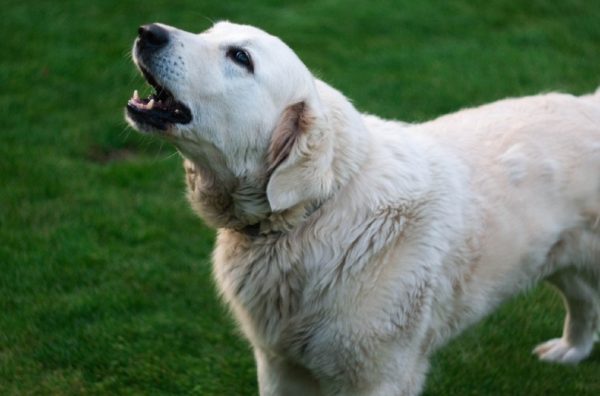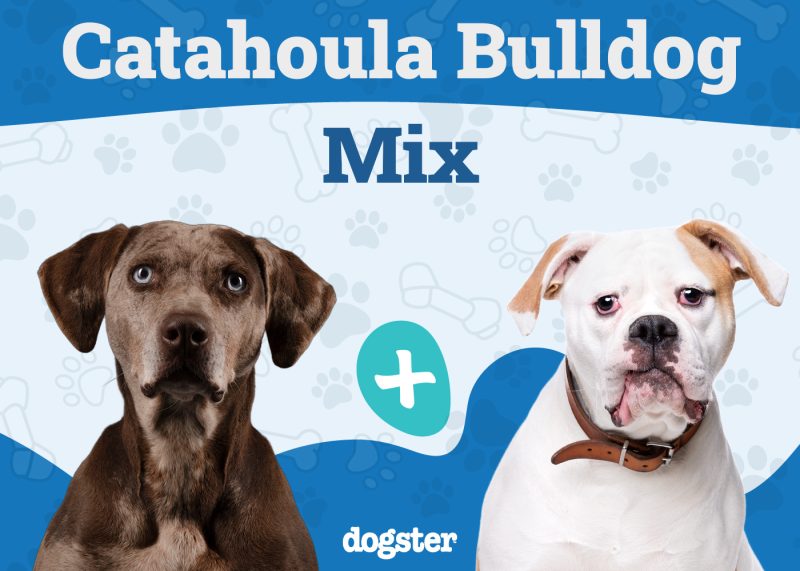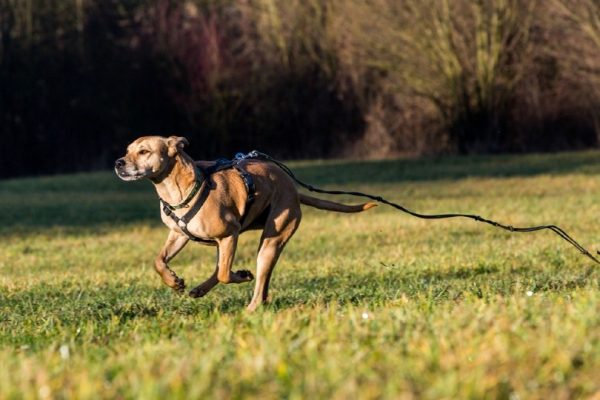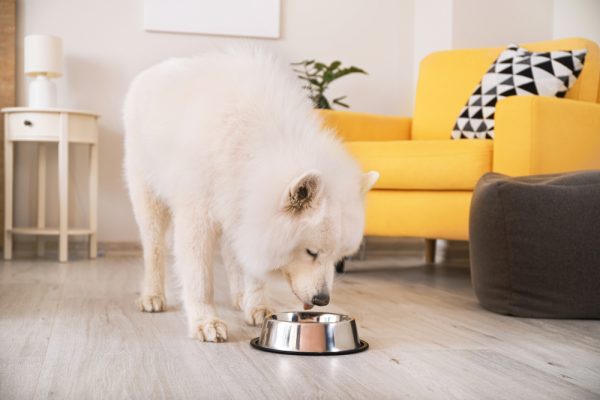In this article
Dogs can do some silly things, and Pugs especially are known for their antics. Sometimes they can do things that seem really smart, and other times they do things that aren’t so smart. So how smart are Pugs really? As a general answer, they are mid-intelligent. This article aims to analyze the intelligence of Pugs in-depth. Gaining insight into the cognitive abilities of Pugs as pets is essential for effective training and appreciating their distinct characteristics.

How Is Intelligence Measured in Dogs?
Dog intelligence assessment methods were developed by Stanley Coren, who wrote a book called The Intelligence of Dogs. Coren took into account the varying cognitive abilities across breeds. These measurements include instinctive intelligence, adaptive intelligence, and working and obedience intelligence.
| Instinctive intelligence: |
Refers to the innate abilities of a dog breed, such as herding, hunting, or guarding.
|
| Adaptive intelligence: |
Concerns a dog’s ability to learn from their environment and solve problems independently.
|
| Working and obedience intelligence: |
Measures how well a dog can learn and perform tasks when trained by humans.
|

Are Pugs Smart?
According to Stanley Coren’s Dog Intelligence Ranking, Pugs rank as the #57 smartest dog breed. This may not seem very high, but it does classify them as having fair working/obedience intelligence and puts them in the same category as Chihuahuas and Saint Bernards. Let’s look at different areas of a Pug’s intelligence.
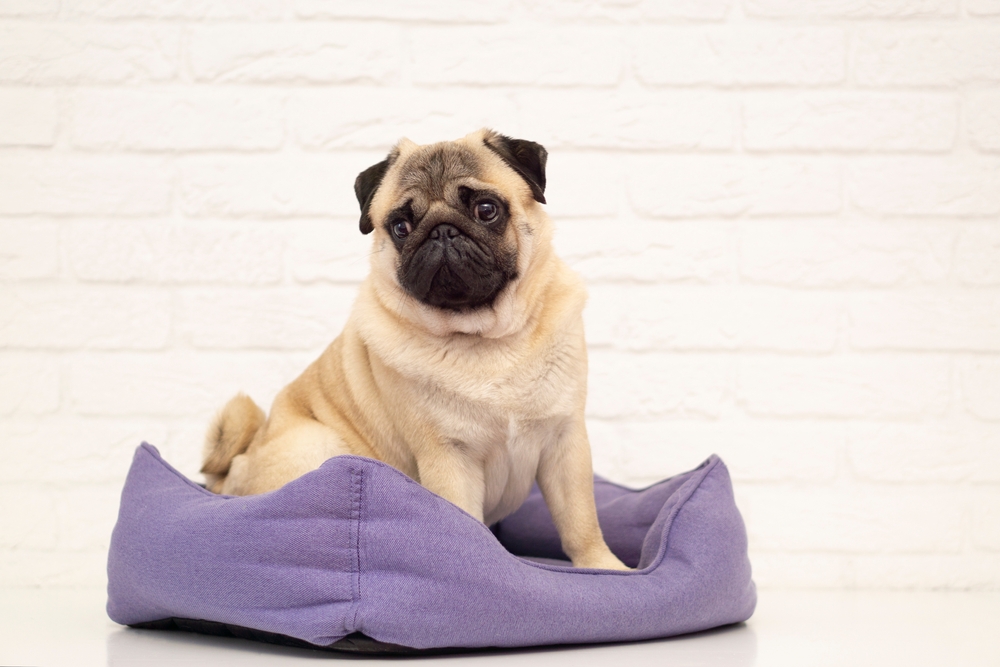
1. Temperament
Pugs are recognized for their affectionate, friendly, and social nature. They are loyal companions that flourish through human interaction. Their sociable temperament contributes to emotional intelligence, as they can effortlessly sense their owner’s emotions and respond suitably.
2. Trainability
Pugs are often misperceived as stubborn and difficult to train. However, this misconception arises from their independent nature and eagerness to please themselves, not a lack of intelligence. Through patience, consistency, and positive reinforcement, Pugs can be trained to follow basic commands and perform tricks.
3. Genetics
Pugs possess traits that make them adaptive problem solvers. For instance, Pugs have an acute sense of smell, which they can use to navigate their environment and locate hidden treats or toys. Additionally, their brachycephalic (short-nosed) facial structure may contribute to their exceptional ability to read human facial expressions, emphasizing their emotional intelligence.
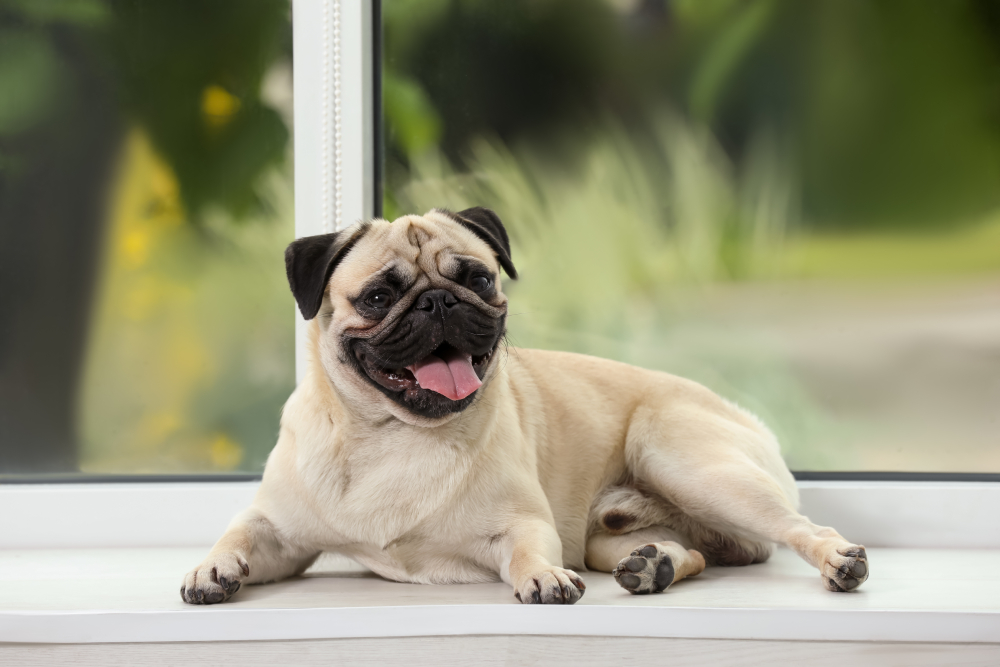

Pug Intelligence in Daily Life
Socialization and Interaction with Other Pets
Pugs are known for their friendly and sociable nature, which makes them great companions for both humans and other pets. Early socialization is key to ensuring that Pugs develop well-rounded social skills and can interact confidently with various animals. Regular exposure to different environments, people, and pets will help your Pug harness its innate sociability and emotional intelligence.
Problem-Solving Skills and Pugs at Play
Pugs may not be the top problem solvers in the canine world, but they do possess a level of adaptability that allows them to engage in play and solve puzzles. Providing your Pug with interactive toys and games can help stimulate their cognitive abilities and keep them mentally engaged. Activities such as hide-and-seek, scent-based games, and puzzle toys can challenge your Pug’s problem-solving skills while providing them with fun and entertainment.
Pugs as Therapy and Emotional Support Dogs
Due to their affectionate and empathetic nature, Pugs can make excellent therapy and emotional support dogs. Their ability to sense human emotions and respond appropriately makes them suitable candidates for providing comfort and companionship to those in need. With proper training and certification, Pugs can serve as valuable therapy dogs in various settings, such as hospitals, nursing homes, and schools.

Training Tips for Pugs
Positive Reinforcement Techniques
Pugs respond best to positive reinforcement training methods. Using treats, praise, and play as rewards for good behavior will help motivate your Pug during training sessions. This approach not only strengthens the bond between you and your Pug but also encourages them to learn and retain new commands more effectively.
Addressing Pug-Specific Challenges
Pugs can be stubborn and independent, which may pose challenges during training. To overcome these challenges, maintain consistency in your training routine, and establish yourself as the leader. Patience is crucial when training a Pug, as pushing them too hard or resorting to negative reinforcement may lead to resistance and decreased motivation.


Enrichment Activities for Mental Stimulation
Providing your Pug with various enrichment activities can help keep their minds sharp and engaged. Some ideas for mental stimulation include:
| Puzzle toys: |
Toys are designed to challenge your Pug’s problem-solving skills while dispensing treats as rewards.
|
| Interactive games: |
Engage your Pug in games like hide-and-seek or fetch, which require them to use their intelligence and instincts.
|
| Scent-based activities: |
Utilize your Pug’s keen sense of smell by hiding treats or scented objects for them to find.
|
| Obedience training: |
Regularly practicing obedience commands and teaching new tricks can help keep your Pug mentally stimulated and reinforce their learning abilities.
|
By incorporating these activities into your Pug’s daily life, you can help enhance their cognitive abilities and overall well-being.

Final Thoughts
Although Pugs may not rank highest in traditional canine intelligence measurements, they possess unique cognitive abilities that make them smart in their own way. Their affectionate temperament, adaptability, and problem-solving skills make them delightful companions capable of learning and growing alongside their human counterparts.
See also:
Featured Image Credit: evrymmnt, Shutterstock



